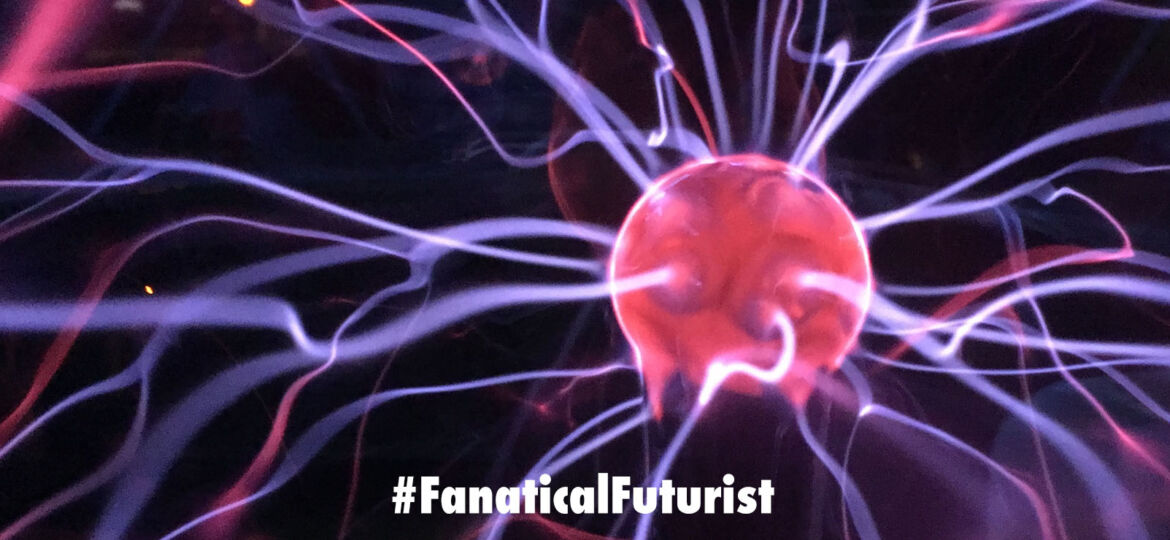
WHY THIS MATTERS IN BRIEF
Nuclear fusion is the ultimate green energy – according to some – and it’s slowly edging closer to reality.
 Love the Exponential Future? Join our XPotential Community, future proof yourself with courses from XPotential University, connect, watch a keynote, or browse my blog.
Love the Exponential Future? Join our XPotential Community, future proof yourself with courses from XPotential University, connect, watch a keynote, or browse my blog.
The field of nuclear fusion has seen some exciting advances of late, with scientists creating the first self-healing nuclear fusion reactors and truck sized fusion reactor concepts, as well as demonstrating how the massive energy and fuels necessary to kick start the fusion process can be heated to the extreme temperatures needed for the necessary reactions to take place.
All around the world scientists are hard at work trying to create the world’s first commercial reactor where the energy generated through those reactions is enough to keep the sequence going, something known as fusion ignition, and something that could fulfil fusion’s promise of unlimited, clean energy. And now “Extraordinary results” from experiments with an extraordinarily high-powered laser have just taken us a whole lot closer to realising that goal.
Learn more about the Future of Energy, Keynote by Matthew Griffin
Inside a 10 story building the size of three football fields at Lawrence Livermore National Laboratory’s National Ignition Facility in California is an array of 192 lasers, which can combine to deliver 1.9 megajoules of ultraviolet leaser energy onto a tiny chamber in the center. These pulses take place in a billionth of a second, but concentrated onto something the size of BB projectile, they can create tremendous temperatures and pressures that might just kickstart the future fusion energy revolution.
Like all nuclear fusion experiments, the idea is to recreate the reactions that take place constantly within our Sun, where extreme temperature and pressure combine to force the fusion of separate atoms into helium, which releases momentous amounts of energy as a result. The approach being pursued at the National Ignition Facility is known as inertial confinement fusion, and since coming online in 2009, we’ve seen its scientists take some important steps forward.
This began with hitting a target with a one-megajoule laser and demonstrating control over the scattering beams in 2010, and then delivering a record setting 500-trillion-watt laser shot in 2012. A big breakthrough came in 2014, when the NIF team demonstrated a one-off “fuel gain,” where the lasers were focused onto a tiny plastic capsule filled with deuterium and tritium, creating a reaction that gave off more energy than what was put in.
This was an important milestone in the pursuit of ignition, where the fusion reactions would create a plasma hot enough to trigger a runaway effect in which reactions take place over and over in a self-sustaining cycle. As reported by Science magazine, the NIF team have since proceeded to experiments yielding 100 kJ, and one even as high as 170 kJ, edging ever so closer to their goal.
The scientists are now claiming a massive leap forward, with experiments conducted in early August achieving a yield of more than 1.3 megajoules. The work is yet to be peer-reviewed, a process that will help them work through the technical reasons behind this huge success, but the initial analysis points to an eight-fold improvement on their most recent round of experiments, and one that moves them much closer to the goal of fusion ignition.
At this stage, the team points to design improvements in the casing that holds the fuel capsule, better precision of the laser and tweaks that drive up the energy coupled with the reactions, as the reasons for the gains. Plans for the next experiments are already in the pipeline, and are expected to take place in the coming months.
















